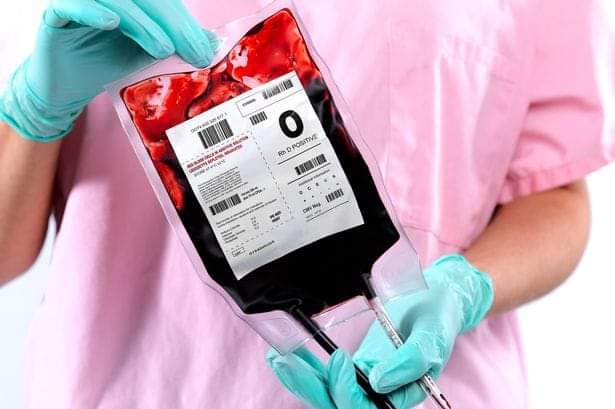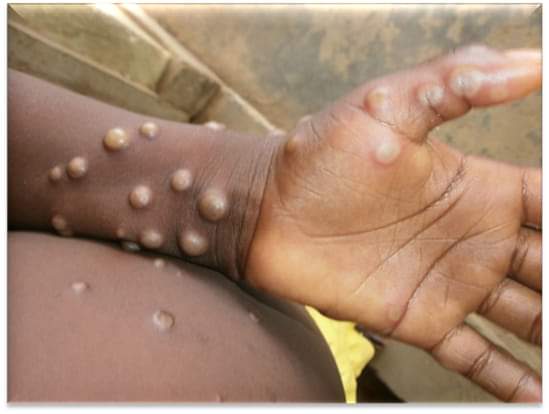BLOOD GROUP: The ABO-AB and the Newest Blood Group

Did you know that the four main blood types—A, B, O, and AB–aren't the only blood classification system, and that a new blood group has been discovered?
You’re probably familiar with the four main blood types—A, B, O, and AB. But this isn’t the only blood classification system. There are many ways of grouping red blood cells based on differences in the sugars or proteins that coat their surface, known as antigens. The grouping systems run concurrently, so your blood can be classified in each—it might, for instance, be type O in the ABO system, positive (rather than negative) under the Rhesus system, and so on.
Thanks to differences in antigens, if someone receives incompatible blood from a donor, for example, the recipient’s immune system may detect those antigens as foreign and react against them. This can be highly dangerous, and is why donated blood needs to be a suitable match if someone is having a transfusion.
On average, one new blood classification system has been described by researchers each year during the past decade. These newer systems tend to involve blood types that are mind-bogglingly rare but, for those touched by them, just knowing that they have such blood could be lifesaving. This is the story of how scientists unraveled the mystery of the latest blood system—and why it matters.
It was back in 1982 that researchers first described an unusual antibody in a blood sample that hinted that this mystery blood type was out there. The scientists couldn’t go much further than that at the time, but they knew that the antibody was a clue pointing toward some unknown molecule or structure that prompted the person’s immune system to generate it.
In the years that followed, more people with these unusual antibodies turned up—but only now and again. Generally, these people surfaced thanks to blood tests containing the mysterious and rare antibodies. Eventually, Nicole Thornton and her colleagues at NHS Blood and Transplant in the United Kingdom decided to look into what might be behind the antibodies...
But so rare were the mysterious antibodies in the latest work that when the team started their investigation, they had historical blood samples from just 13 people—gathered over 40 years—to analyze. Other recently established systems have been found thanks to similarly small numbers of people.
Back in 2020, Thornton and her colleagues described a new blood group called MAM-negative that at the time was confirmed in just 11 people worldwide. And some of the most recently discovered blood groups have been found in single families, she adds. Both “MAM” and “Er” are obscure references to the names of the patients whose blood samples first sparked the possibility of a new blood group discovery.
It turns out that the new, 44th grouping system, detailed in the journal Blood, is tied to a particular protein found on the surface of red blood cells. Originally, Thornton had an inkling this protein, called Piezo1, was involved after she compared the genomes of patients in the study. She and colleagues noticed how the gene responsible for this protein varies across people with different Er blood types. Due to those genetic differences, a small number of people have alternative amino acids, or building blocks, in their Piezo1 protein. Blood cells with the more common Piezo1 protein seem foreign to their bodies’ immune systems as a result.
The team then checked to see whether antibodies reacted with lab cultures that either did or did not contain mutant versions of the Piezo1 protein, which they created using gene editing. That allowed them to confirm that variation in Piezo1 really was the driver of blood incompatibility in the people whose samples they were looking at...
There are five Er antigens in total—five possible variations of Piezo1 on the surface of red blood cells that can lead to incompatibility. Two of the antigens were newly described by Thornton and her fellow researchers, and one of those was found in blood from the pregnant woman in the UK who lost her baby.
The results of the study will likely be officially ratified as defining a new blood group system later this year, at a meeting of the International Society of Blood Transfusion. The effort required to make the discovery was “massive,” says Neil Avent, honorary professor in the blood diagnostics group at the University of Plymouth, who was not involved in the work. It also revealed complexities about this rare blood—for instance, that there are multiple genetic mutations associated with it.
Across the Atlantic, a separate team of researchers had also been trying to unravel the secrets of the new Er blood group, but were beaten by the British team.
Source: Read the full report: https://www.wired.com/story/new-blood-types/
#penglobalhealth



